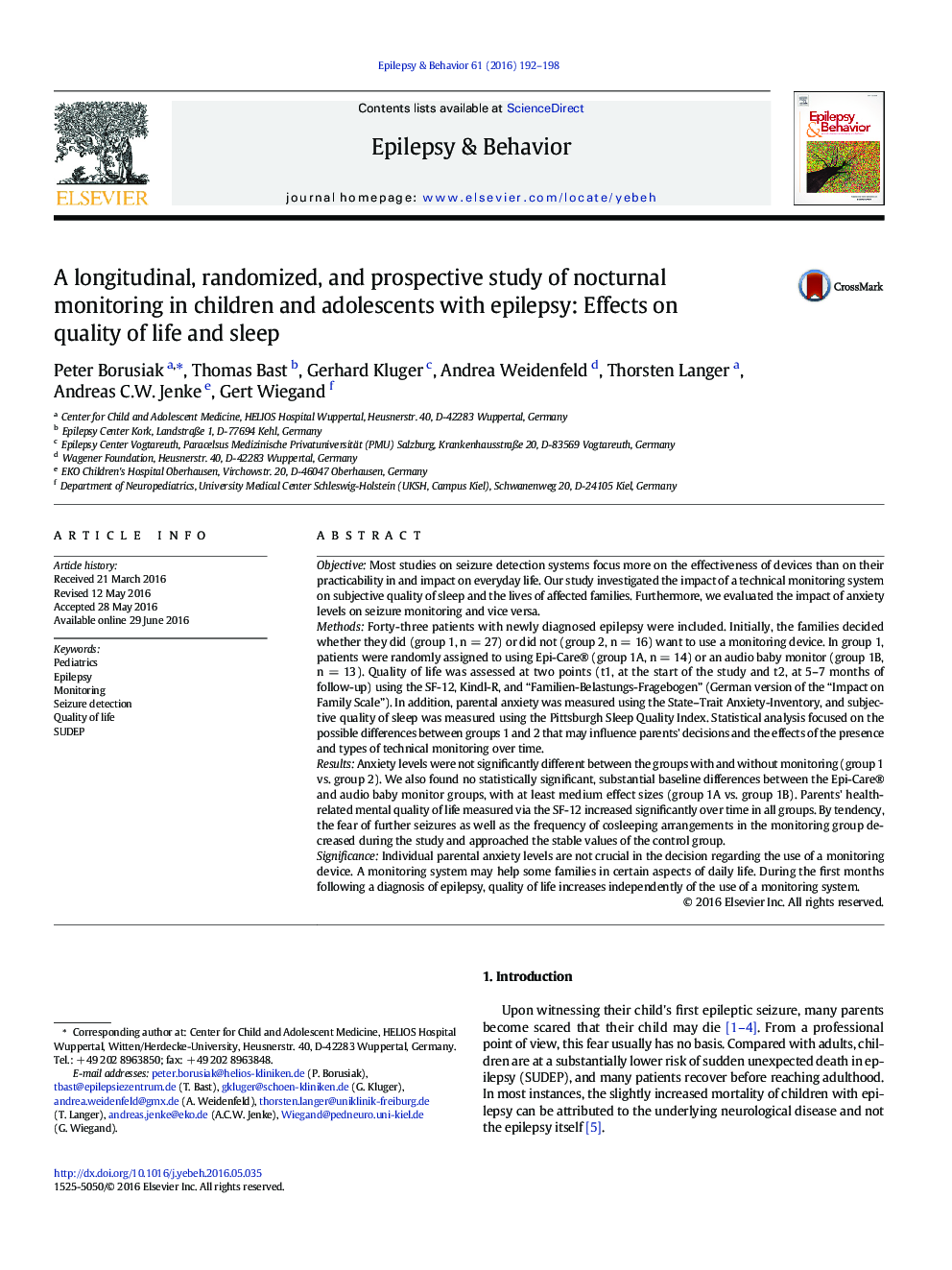| کد مقاله | کد نشریه | سال انتشار | مقاله انگلیسی | نسخه تمام متن |
|---|---|---|---|---|
| 6010022 | 1579830 | 2016 | 7 صفحه PDF | دانلود رایگان |
- Individual parental anxiety levels are not crucial in the decision to use a monitoring device.
- Parents who decide in favor of a system for seizure monitoring seem to benefit from it in certain aspects of daily life.
- During the course of epilepsy, QoL increases independently of the chosen monitoring system.
- We did not find any differences between the tested devices with respect to their benefits in everyday life.
ObjectiveMost studies on seizure detection systems focus more on the effectiveness of devices than on their practicability in and impact on everyday life. Our study investigated the impact of a technical monitoring system on subjective quality of sleep and the lives of affected families. Furthermore, we evaluated the impact of anxiety levels on seizure monitoring and vice versa.MethodsForty-three patients with newly diagnosed epilepsy were included. Initially, the families decided whether they did (group 1, n = 27) or did not (group 2, n = 16) want to use a monitoring device. In group 1, patients were randomly assigned to using Epi-Care® (group 1A, n = 14) or an audio baby monitor (group 1B, n = 13). Quality of life was assessed at two points (t1, at the start of the study and t2, at 5-7 months of follow-up) using the SF-12, Kindl-R, and “Familien-Belastungs-Fragebogen” (German version of the “Impact on Family Scale”). In addition, parental anxiety was measured using the State-Trait Anxiety-Inventory, and subjective quality of sleep was measured using the Pittsburgh Sleep Quality Index. Statistical analysis focused on the possible differences between groups 1 and 2 that may influence parents' decisions and the effects of the presence and types of technical monitoring over time.ResultsAnxiety levels were not significantly different between the groups with and without monitoring (group 1 vs. group 2). We also found no statistically significant, substantial baseline differences between the Epi-Care® and audio baby monitor groups, with at least medium effect sizes (group 1A vs. group 1B). Parents' health-related mental quality of life measured via the SF-12 increased significantly over time in all groups. By tendency, the fear of further seizures as well as the frequency of cosleeping arrangements in the monitoring group decreased during the study and approached the stable values of the control group.SignificanceIndividual parental anxiety levels are not crucial in the decision regarding the use of a monitoring device. A monitoring system may help some families in certain aspects of daily life. During the first months following a diagnosis of epilepsy, quality of life increases independently of the use of a monitoring system.
Journal: Epilepsy & Behavior - Volume 61, August 2016, Pages 192-198
